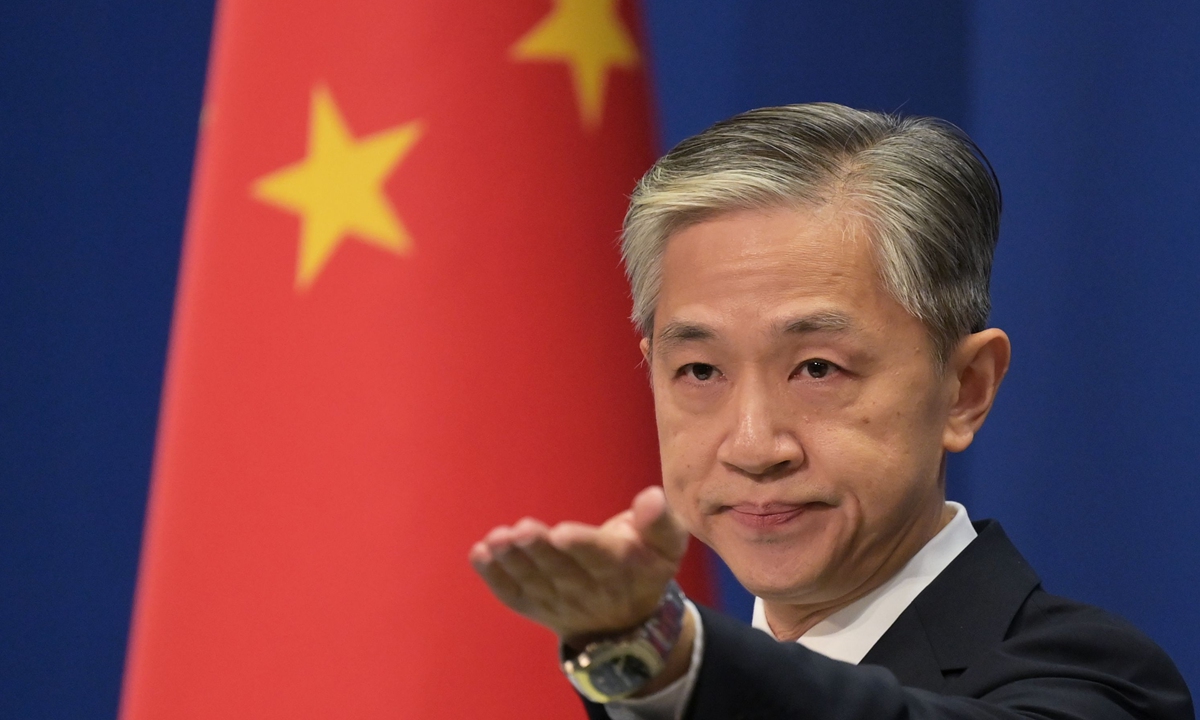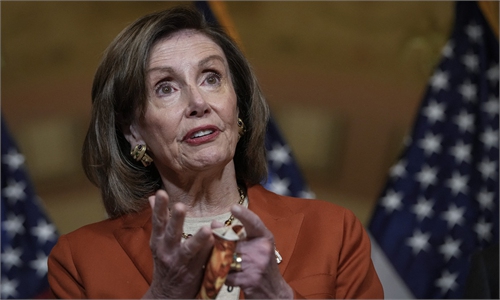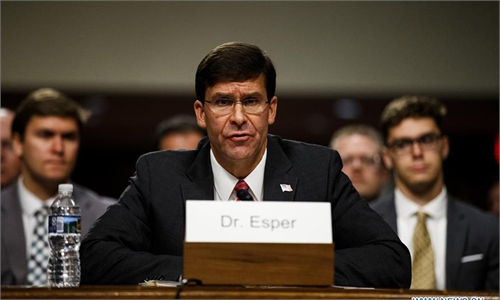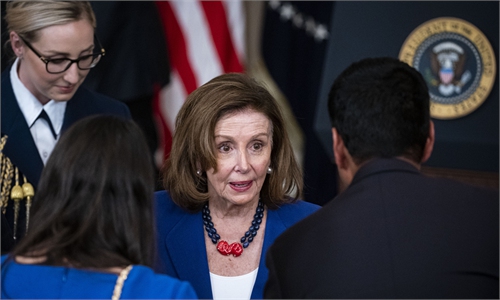European Parliament slammed for poisoning China-EU relations and urged to abide by one-China principle

Chinese Foreign Ministry Spokesperson Wang Wenbin Photo: VCG
Chinese Foreign Ministry denounced the European Parliament (EP) on Wednesday for having seriously violating the one-China principle and urged the EU body to stop any forms of official exchanges with China's Taiwan region.
The responding remarks came after EP's vice-president Nicola Beer arrived on Taiwan island leading a delegation and kicked off a three-day visit to show support to the secessionists in the island. Taiwan's secessionist Democratic Progressive Party (DPP) authorities hyped the fact that Beer is the first EP official at this level to visit the island in an official capacity.
Upon her arriving, Beer said the EU would not turn a blind eye to "China's threats" toward the island, as she maintains that "Taiwan's bloom is Europe's bloom," Taiwan-based media reported. Beer is scheduled to meet Taiwan's regional leader Tsai Ing-wen during the visit.
"Taiwan is an inalienable part of China's territory. The one-China principle is a widely recognized basic norm in international relations and the political foundation of China-Europe relations. The EP is an official institution of the EU. Hence its members and senior officials are expected to abide by the one-China principle," said Wang Wenbin, spokesperson of Chinese Foreign Ministry on Wednesday.
Over the past two years, the European Parliament has promulgated multiple Taiwan-related resolutions to support and embolden "Taiwan independence" forces. Such moves have gravely violated the one-China principle and poisoned the atmosphere of China-Europe relations, Wang stressed.
"China firmly opposes all forms of official interactions between the EU side and the Taiwan region," Wang said, "We urge the EU to earnestly abide by the one-China principle, to speak and act with prudence on issues related to Taiwan, and to prevent any serious disruption in China-Europe relations."
According to some Taiwan-based media, Beer is a "longtime supporter" of Taiwan as she has pushed for Taiwan-related bills within the EP, as well as calling for the island's participation in international organizations. She is anticipated to discuss security issues with Taiwan officials, as well as the potential cooperation on high-tech supply chain, Taiwan media said.
Chinese mainland analysts said that there has been a change in the level of visits from groups of parliamentarians to its vice head, but the relationship between the EP and the Taiwan authorities is merely about taking advantage from each other. Early this month, the EP passed a report on the "Indo-Pacific Strategy in the Area of Trade and Investment" in which the EU's legislative body calls on EU members to promote economic ties with the Taiwan authorities, especially in the semiconductor industry.
Cui Hongjian, director of the Department of European Studies at the China Institute of International Studies, told the Global Times that relying on its semiconductor industry, Taiwan authorities has taken advantage of the EP's long-standing bias and erroneous stance toward Chinese mainland to woo Europe and improve Taiwan's international visibility. While the EP politicians, on the other hand, want to use the Taiwan question to further enhance their own status and exert influence on EU's decision making.
"The parliament's move reflects a trend toward populism in EU politics," Cui said. He noted that external policy is a solemn matter which should not be held hostage by certain people or the so-called public opinion.
"Most people and even the EP members do not really understand diplomacy or the main interests of EU, and are simply motivated by personal interests," Cui said, "This is sure to cause further trouble for China-EU relations."
A Beijing-based international relation expert who requested not to be named told the Global Times that the EU needs to rein in its so-called representative body of public opinion and legislative body, and should not allow its inner chaos and populist voices to affect China-EU relations.
"The EP and other EU institutions must abide by the one-China principle," the expert said.
Taiwan's chip and semiconductor industry is part of the global industrial chain. EU should not link the supply chain with the Taiwan question, which is totally China's internal affairs, as these are essentially different areas, he said.
Amid the spat, China and EU are expected to hold the 9th high-level economic and trade dialogue on Tuesday, with the European commissioner for trade Valdis Dombrovskis and Chinese Vice Premier Liu He as co-chairs in the virtual dialogue, media reported.
The better the economic and trade cooperation between China and Europe, the less effective will be Taiwan authorities' game of industry chain with the EP, Cui said.
Compared with the close economic and trade relations between China and Europe that have developed over the years, the collusion between the Taiwan authorities and the EP politicians cannot shake the foundations of China-EU cooperation, Cui said.




